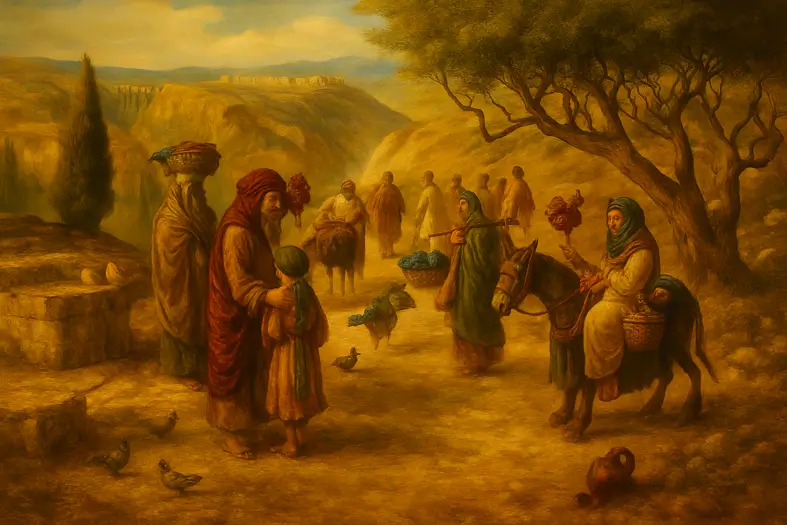


If a firstborn donkey is not redeemed with a lamb or goat, its neck must be broken.
This mitzvah follows directly from the command to redeem a donkey. If the owner refuses to redeem it, he must not keep the donkey for personal use. Instead, he must perform arifah (breaking its neck), rendering it forbidden for benefit.
The mitzvah demonstrates that neglecting redemption wastes potential blessing — highlighting the importance of fulfilling Hashem’s commands. The destruction serves as a deterrent: better to redeem and sanctify than to lose entirely.
While the donkey is non-kosher and not used for food, it had great value as a beast of burden. Losing it through arifah emphasizes obedience to Hashem’s laws above material gain.
Commentary & Classical Explanation:


Represents Emunah—the deep, inner trust in Hashem’s presence, oneness, and constant involvement in our lives. This badge symbolizes a heartfelt connection to G-d, rooted in belief even when we cannot see. It is the emotional and spiritual core of many mitzvot.
Signifies awe and reverence toward Hashem—living with awareness of His greatness and presence.
Represents the concept of spiritual intentionality, purity, and sanctity—set apart for a higher purpose.
Mitzvot that uphold fairness, honesty, and moral responsibility. Justice is kindness structured — ensuring that society reflects G-d’s order through truth, equity, and accountability.
Mitzvot that strengthen communal life — showing up, participating, supporting, and belonging. Community is where holiness is shared, prayers are multiplied, and responsibility becomes collective.
Mitzvot that define and deepen the relationship between a person and their Creator. These include commandments involving belief, prayer, Shabbat, festivals, sacrifices, and personal holiness — expressions of devotion rooted in divine connection.

Dive into mitzvos, prayer, and Torah study—each section curated to help you learn, reflect, and live with intention. New insights are added regularly, creating an evolving space for spiritual growth.

Explore the 613 mitzvos and uncover the meaning behind each one. Discover practical ways to integrate them into your daily life with insights, sources, and guided reflection.

Learn the structure, depth, and spiritual intent behind Jewish prayer. Dive into morning blessings, Shema, Amidah, and more—with tools to enrich your daily connection.

Each week’s parsha offers timeless wisdom and modern relevance. Explore summaries, key themes, and mitzvah connections to deepen your understanding of the Torah cycle.